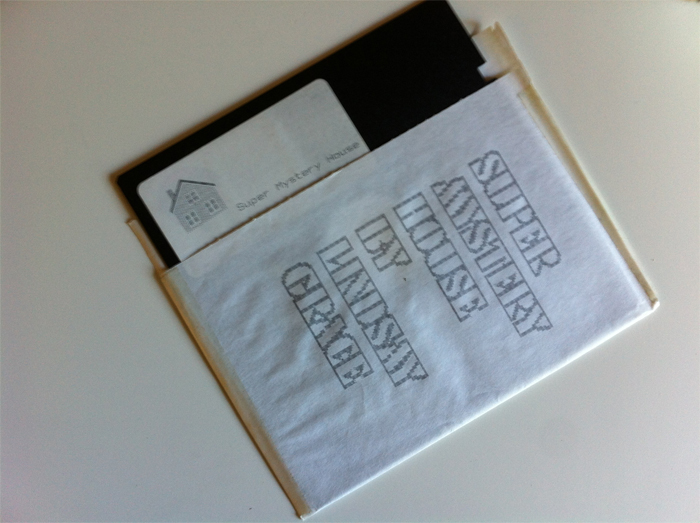What Does Mindtoggle Mean?
The name comes from the idea of toggles — switches that change states. Mindtoggle aims to change minds through interactive experiences.
This might happen through a guest lecture, a workshop, a game jam, or in making something together. Drawing from research in social impact games and game studies, Mindtoggle flips switches, turning the mundane into something engaging, flipping boring to exciting, or complex to simple.
Mindtoggle Consulting and Professional Services
We Flip the Switch on Complex Problems. Mindtoggle is a playful media and game design consultancy that transforms how people think, learn, and engage. These services are lead by Dr. Lindsay Grace (PhD, MFA, MS), the principal of Mindtoggle LLC. Dr. Grace is a 20-year veteran of game-making and interactive media. Lindsay leads Mindtoggle's mission to apply playful design to serious challenges. He is a professor, Knight Chair, and former founding director of the American University Game Lab and the Miami University Persuasive Play Lab.
His work spans award-winning commercial games, social impact projects, and groundbreaking academic research. He has been invited to give talks on design, games and culture, misinformation and much more globally. Mindtoggle is the synthesis of this experience—a consultancy dedicated to the idea that play is a powerful tool for innovation.
Mindtoggle Games
Middtoggle Software makes casual games for a casual life. Mindtoggle Games is a little company, making little games. In fact, it’s a one man operation. The goal is to make fun little games that loosely relate to the research of Lindsay Grace, Knight Chair in Interactive Media at the University of Miami. Mindtoggle software's apps and games are a subset of the Mindtoggle consultancy. They are experiments in marketing, design and development meant to inform practice in much the way faculty research other domains. Think of them less as commercial or artistic ventures and more like tests of the game industry, its marketplaces, and consumer demand. Some of the games contain Critical Gameplay, some are about social impact through play and others are mere entertainment. Much of Mindtoggle's work focuses on games in serious contexts. These include education, social impact, newsgames and more. That doesn’t mean play has to go away. It’s just the opposite, adults need play. So do kids. So Mindtoggle makes games for everyone.
→ Our Philosophy
Mindtoggle games are mind-switching games and experiences. Sometimes they're hard. Sometimes they make you ask questions. Sometimes they help you switch your brain to the off position. Most games and experiences are rapid experiments, created in 5 days or less to create impact quickly
 Led by Professor Lindsay Grace (PhD, MFA, MS), Knight Chair in Interactive Media at the University of Miami, with 20+ years of experience in game-making and interactive media.
Led by Professor Lindsay Grace (PhD, MFA, MS), Knight Chair in Interactive Media at the University of Miami, with 20+ years of experience in game-making and interactive media.
Dr. Lindsay Grace is Knight Chair in Interactive Media and a full professor at the University of Miami School of Communication. He is Vice President for the Higher Education Video Game Alliance and the 2019 recipient of the Games for Change Vanguard award. Lindsay's book, Doing Things with Games, Social Impact through Design, is a well-received guide to game design. In 2020, he edited and authored Love and Electronic Affection: a Design Primer on designing love and affection in games. In 2021 he published the Amazon best seller, Black Game Studies, an Introduction to the games, game makers and scholarship of the African diaspora
His work has received awards and recognition from the Games for Change Festival, the Digital Diversity Network, the Association of Computing Machinery's digital arts community , Black Enterprise and others. He authored or co-authored more than 95 papers, articles and book chapters on games since 2009. His creative work has been selected for showcase internationally including New York, Paris, São Paulo, Singapore, Chicago, Vancouver, Istanbul, and others. Lindsay curated or co-curated Blank Arcade (2014-2016), Smithsonian American Art Museum’s SAAM Arcade (2014-2017), the Games for Change Festival (2017, 2022, 2023) and others.
He has given talks at the Game Developers Conference, SXSW, Games for Change Festival, the Online News Association, the Society for News Design, and many other industry events. He has had appearances on domestic and international television and radio and written editorials published by CNN and others.
Between 2013 and 2018 he was the founding director of the American University Game Lab and Studio. He served as Vice President and on the board of directors for the Global Game Jam™ non-profit between 2014-2019. From 2009 to 2013 he was the Armstrong Professor at Miami University’s School of Art. Lindsay also served on the board for the Digital Games Research Association (DiGRA) between 2013-2015.

